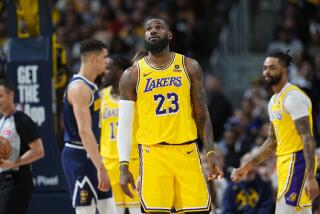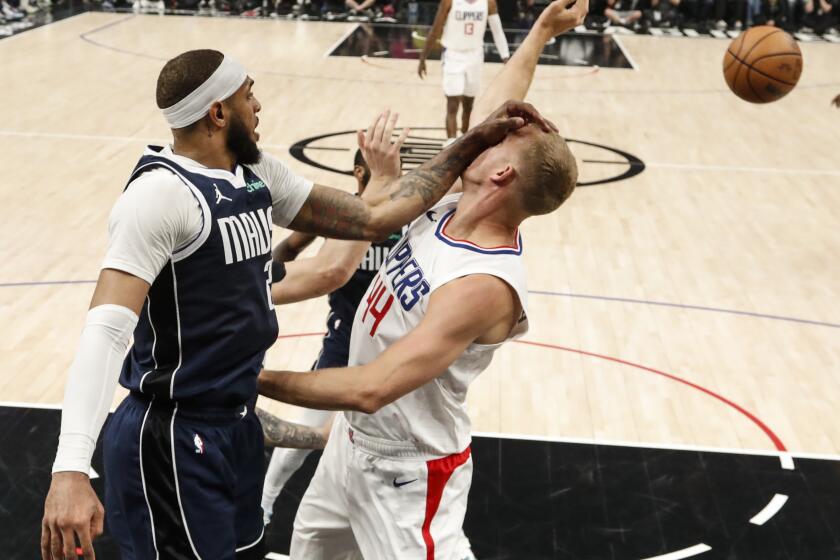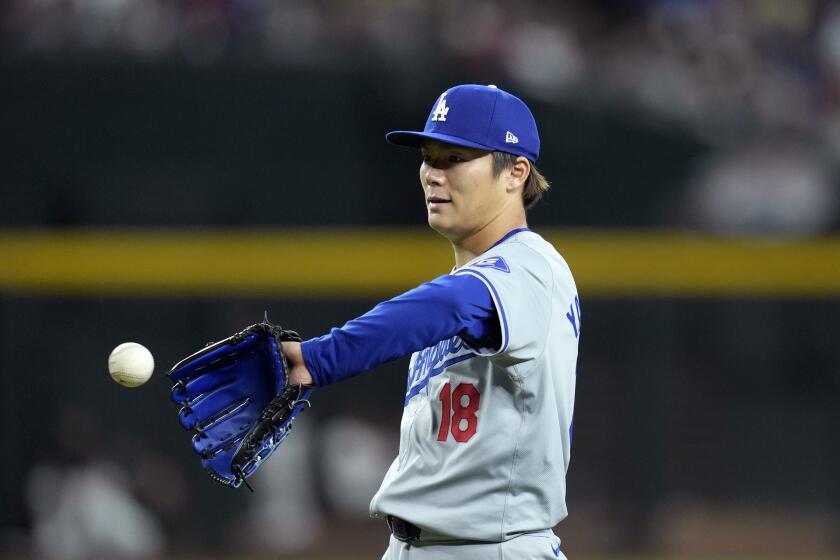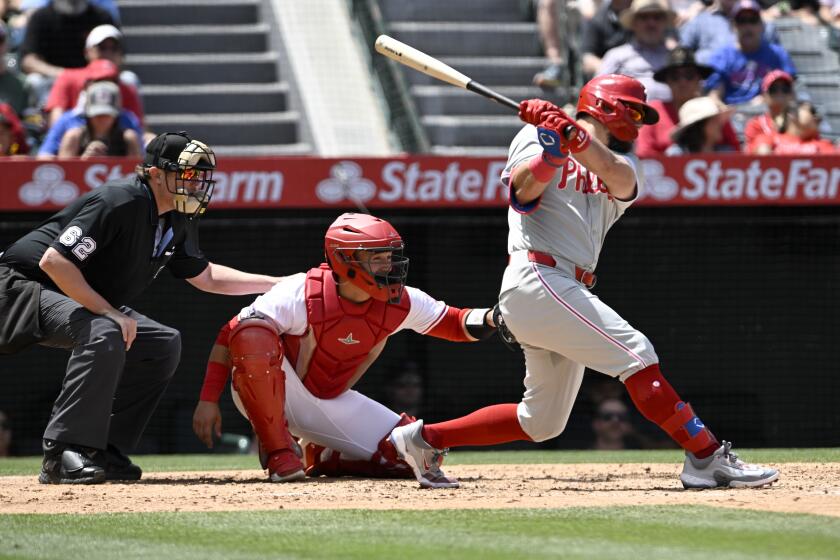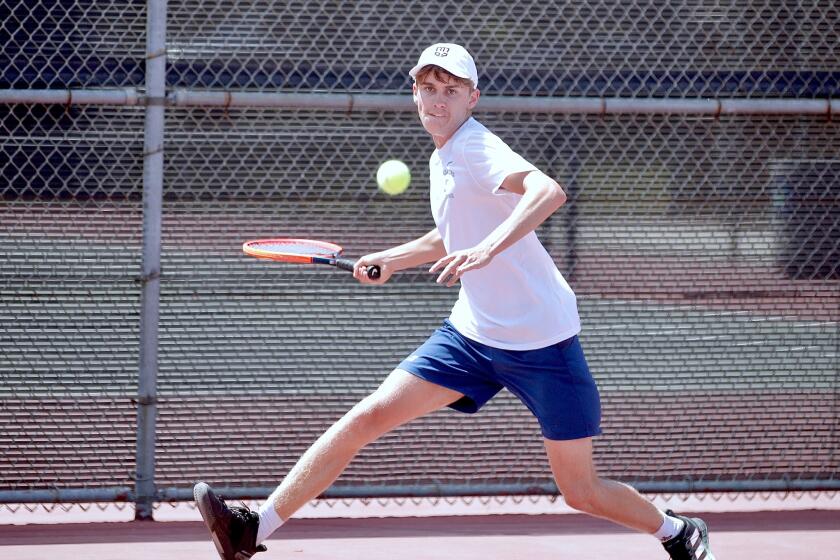A Genius ON Call
Of his return to the 49ers after seven years in the wilderness, Bill Walsh says, “It’s going pretty smoothly.”
The team’s media guide identifies him as “administrative assistant” with a one-page biography alongside the equipment manager’s. Once lord of all he surveyed, Walsh now works from an office so inconspicuous as to be invisible to all but intrepid explorers.
“For me to see daylight,” he told Clark Judge of the San Jose Mercury News, who found Walsh sitting in a bare room without windows, “I’d have to dynamite through three walls.”
Wait, wait. We need a timeout already.
Here we need to ask two questions.
Administrative assistant?
Bill Walsh?
If the job description says nothing, maybe it’s because there has never before been such a football job. Somehow, Walsh is not a coach even as he is a coach. He sits in on staff meetings. He offers ideas when they occur or when they’re called for. He explains for his successors the West Coast offense he created for the 49ers in the glory seasons of the 1980s when he made himself a Hall of Fame coach.
Bill Walsh, administrative assistant?
We can do better than that.
He’s a genius on call.
“It’s a resource role,” Walsh says, making sure we understand that he returned because he loves being around the game. He reminds us that Marc Trestman is the 49ers offensive coordinator, not Bill Walsh. At 64, having been there and done that, he’s happy to “play a different role at this time of life.”
Walsh insists he neither has nor wants the power and responsibility to make decisions. That insistence may be necessary because critics believe Walsh is unable to be a silent-partner.
NFL Kickoff, the league’s official magazine, quotes former 49ers nose tackle Fred Smerlas on Walsh’s hiring “Bill Walsh has a large ego. He’s not going to be satisfied with just being an offensive coordinator. I feel sorry for George.”
Smerlas refers to George Seifert, the 49ers coach, handpicked by Walsh as his successor in 1989. The unflattering reference causes us to remember that Seifert once resisted Walsh’s return but now embraces it.
Walsh had agreed with Owner Eddie DeBartolo Jr. to come back after the 49ers missed the playoffs for the first time in nine years in 1991. But Seifert objected; he didn’t want Walsh looking over his shoulder, and he couldn’t be comfortable doing a job if he suspected his successor was on the premises. Walsh says, “At the time, I hope George would be less threatened by me. But I understood completely.”
Since then, Seifert has earned security. His teams have won two Super Bowls, and he now has a roster that includes only five players from Walsh’s tenure. So the time had become right for Walsh’s return after seven years in which he stayed busy-and yet they were seven years which, viewed as a piece, suggested a restlessness akin to aimlessness.
Walsh did two years of network TV. He coached three seasons at Stanford University to mediocre results. He worked a year as an NFL hired gun with the World League. He did speaking engagements at $15,000 a pop. He did a raft of make-work projects that asked nothing of his competitive nature and did nothing to remind him of the Bill Walsh he had been.
At the same time, Walsh never really left the 49ers in spirit or in fact. He conferred with offensive coordinators Mike Shanahan and Trestman. From those private sessions came the seed of Walsh’s public return. The seed grew during the 49ers’ frustrating 1995 season.
Club President Carmen Policy felt so comfortable in hiring Walsh this time, as opposed to 1992, that he joked at a January news conference introducing Walsh “I only had a doubt one time. That was five minutes before this press conference, when I went into my office and Bill was in my chair with his feet up on my desk.”
Eight months later, Walsh is comfortable. “I’m working with the coaching staff, sort of behind the scenes,” he says. “I worked with players on the field in the spring, but no longer. Now I’m viewing tapes and helping with game plans and doing some things with personnel.”
On game days, Walsh will be with the 49ers, maybe even in the offensive coaches’ box, but out of sight. That’s because he knows television. “It’s a story piece,” he says. His presence, as a supposed invisible man, would be irresistible to TV directors. “If the game’s dull, they’d turn the camera on me and say, ‘Uh-oh, what’s Walsh doing? Another hot dog!’ ”
At the same time, he says, “When Marc Trestman comes back to the box after halftime, I will visit with him.” These visits presumably will dwell less on hot dogs than on adjustments Walsh might suggest to the offensive coordinator who says of Walsh’s presence, “It’s a once-in-a-lifetime opportunity to work with arguably the greatest offensive football coach of all time.”
Walsh may do the consultant’s job only a year. Though a return to coaching is “very unlikely,” he admits interest in an executive’s job with an expansion team in Los Angeles. “But a team in L.A. doesn’t appear to be coming to fruition. With all the other issues the league has, it seems to be on the semi-backburner. And I only have so many years to go.”
No plans, then, to be this generation’s George Halas, prowling the football sideline as septuagenarian owner, general manager and coach?
Walsh laughed and said, “Oh, no!” Then, by way of confirming the happy life of a genius on call, he said he had plans for 1 o’clock that afternoon. He would not be in staff meetings, nor would he evaluate personnel on tape. “At 1 o’clock today,” he said, bouncy as a kid, “I will play 90 minutes of tennis.”
More to Read
Get our high school sports newsletter
Prep Rally is devoted to the SoCal high school sports experience, bringing you scores, stories and a behind-the-scenes look at what makes prep sports so popular.
You may occasionally receive promotional content from the Los Angeles Times.

